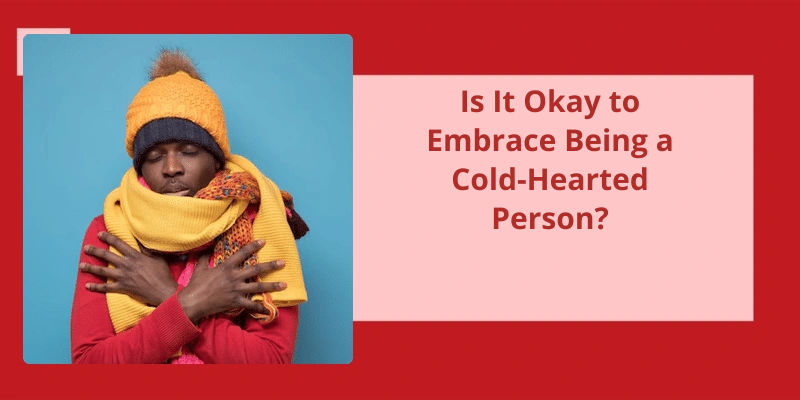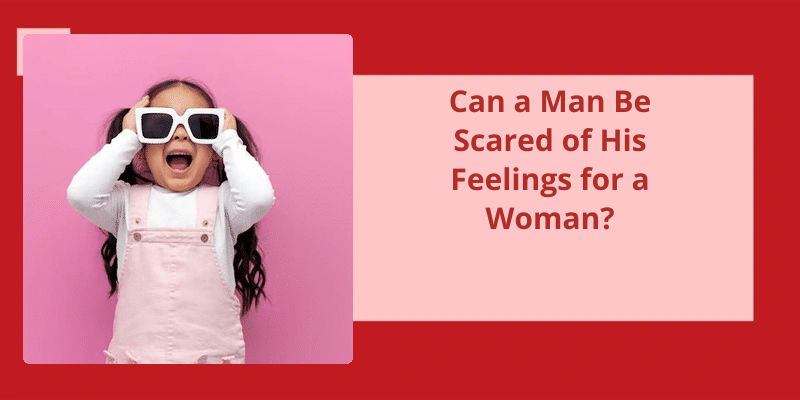"Why Do I Get Uncomfortable When Someone Cares About Me – Everything I Learned" explores the intriguing phenomenon of feeling discomfort when someone genuinely cares for us. Often, this discomfort stems from unfamiliarity with receiving care and attention, as many individuals may have never experienced such affectionate gestures before. For introverted or self-effacing personalities, being the center of attention can be distressing and unsettling. Humble individuals, too, may feel uneasy with the idea of receiving unwarranted attention, finding it difficult to accept genuine care and concern. Delving into this complex emotional experience, this blog article uncovers the various reasons behind this discomfort and offers insights and valuable lessons on how to navigate this discomfort and embrace the care that’s being shown.
Why Does Someone Caring for Me Make Me Uncomfortable?
Another possible reason is that you may have deep-rooted insecurities or trust issues that make it difficult for you to accept care and affection from others. You might fear being disappointed, hurt, or let down if you allow yourself to become vulnerable and open up to someone who cares for you. This fear can create a sense of discomfort and unease when someone genuinely cares for you.
Additionally, the discomfort could stem from a fear of dependence. You might be used to being self-reliant and independent, and the idea of someone caring for you may make you feel like you’re losing control or becoming reliant on someone else. This loss of independence can be unsettling and unfamiliar, causing you to feel uncomfortable in these situations.
It’s also possible that you’ve a fear of intimacy. The thought of someone truly seeing and knowing you on a deeper emotional level can be intimidating and overwhelming. The vulnerability that comes with connecting with someone on a genuine level can trigger feelings of discomfort for some individuals.
Furthermore, cultural or societal norms may play a role in your discomfort. In some cultures, it may be seen as weak or shameful to openly receive care and affection. These cultural expectations can create internal conflicts and make it challenging to accept care from others without feeling discomfort.
Lastly, past experiences may have shaped your response to care and affection. If you’ve previously been hurt or betrayed by someone who claimed to care for you, it’s natural for your guard to go up and for you to become wary of others who show care or affection. The fear of being hurt again can manifest as discomfort when someone cares for you genuinely.
Understanding the underlying reasons behind your discomfort is essential in order to address and work through these feelings. It may be helpful to engage in self-reflection, seek support from a therapist, or talk to trusted individuals who can provide guidance and understanding. Remember, it’s okay to feel uncomfortable, but it’s also important to allow yourself to receive care and affection, as it’s a fundamental part of human connection and growth.
Regardless of the reason, feeling uncomfortable around a certain person is a common experience that many individuals face. It could stem from various factors, including romantic interest, the person’s toxic or intimidating behavior, or even personal insecurities. Sometimes, it can also be an indication of underlying social anxiety or a lack of social skills. Understanding the underlying reasons behind this discomfort can be helpful in addressing and navigating such situations effectively.
Why Do I Feel Uncomfortable With a Certain Person?
Feeling uncomfortable around a certain person can stem from a variety of reasons, and it’s crucial to identify the root cause in order to address it effectively. One common reason for discomfort is having romantic feelings for someone. When you develop strong emotions for someone, you might find it challenging to be around them, fearing rejection or embarrassment. These intense emotions often manifest as discomfort, making it difficult to engage in natural, relaxed interactions.
Another possibility is that the person in question exhibits toxic or intimidating behavior. It’s perfectly understandable to feel uncomfortable around individuals who display narcissistic traits, manipulate others, or engage in aggressive behavior. Recognizing and protecting yourself from these toxic dynamics is essential for your emotional well-being.
Moreover, discomfort may arise from an underlying social anxiety or a lack of social skills. Struggling with social interactions, feeling self-conscious, or fearing judgment can result in discomfort around others, especially in unfamiliar or high-pressure situations. In such cases, it’s beneficial to work on developing social skills and addressing the root cause of social anxiety to foster more comfortable and genuine connections with people.
It’s important to note that discomfort is a valid emotional response and shouldn’t be dismissed. Trusting your instincts and recognizing when you feel uncomfortable around someone is crucial for your safety and well-being. Prioritize your mental and emotional needs by establishing boundaries and distancing yourself from individuals who consistently make you feel uneasy or unhappy.
Strategies for Addressing and Managing Discomfort in Social Settings
- Use deep breathing techniques to calm the body and mind
- Practice positive self-talk to boost confidence and reduce anxiety
- Engage in mindfulness activities to stay present and grounded
- Seek support from trusted friends or family members
- Set realistic expectations and know that it’s okay to feel uncomfortable at times
- Gradually expose yourself to social situations to build resilience
- Develop and use coping strategies, such as visualization or counting exercises
- Take breaks when needed to recharge and regroup
- Focus on finding common interests or topics to ease conversations
- Consider seeking professional help, such as therapy or counseling
Conclusion
It could be a result of unfamiliarity, especially if we’ve never experienced such genuine care before. For introverted individuals, receiving attention can be overwhelming and make them uneasy. Additionally, those who’re humble by nature may feel uncomfortable when they perceive unwarranted attention as they prefer to downplay their achievements. Understanding the reasons behind our discomfort can help us navigate these situations with greater ease and acceptance. Ultimately, it’s important to remember that being cared for is an incredible gift, and embracing it can lead to deeper connections and personal growth.






